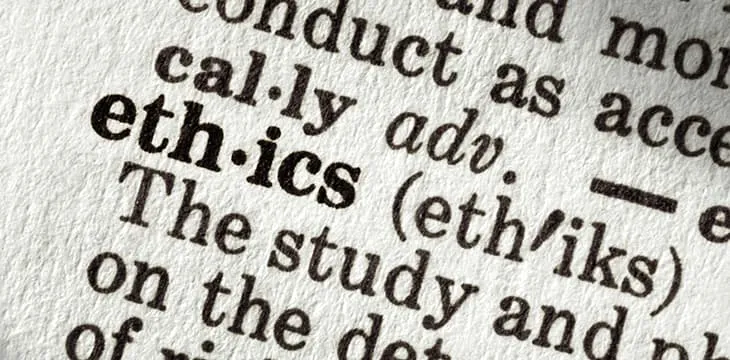|
Getting your Trinity Audio player ready...
|
“On ne résiste pas à l’invasion des idées,” goes the famous quote by French novelist Victor Hugo. In English—“one resists the invasion of armies; one does not resist the invasion of ideas.”
This quote opens Bitcoin and Ethics in a Technological Society, a chapter released by open-source academic publisher IntechOpen and written by veteran technology consultant and Bitcoin Association technical outreach specialist Bryan Daugherty and academic author Eva R. Porras.
In it, the authors analyse the societal response to blockchain and Bitcoin, identifying a lack of nuance in the general conversation surrounding the issue which has only become more problematic as digital assets increasingly dominate the mainstream. Change often inspires fear, which can explain the hostile treatment that Bitcoin has tended to receive from institutional media outlets (humorously, this reaction is exemplified in the chapter by a sample of headlines from the likes of the New York Times, such as ‘Bitcoin is Evil’ and ‘Why I want Bitcoin to die in a fire’).
Though this hysteria can in part be attributed to suspicion of the unknown, the reaction can’t be dismissed solely on that basis. After all, a scan of ‘crypto’ headlines on a given day will show that there are indeed many evils being done which have been enabled by certain corners of the industry. At the same time, incredible and world-changing products are being built using the Bitcoin and blockchain which was originally released to the world in 2008.
The chapter argues that the problem is one of nuance—or rather, the lack of it:
The lack of understanding of how the technology works and the permeability of attitudes rooted on moral grounds have resulted in high-peach statements by many including relevant figures in the financial sector and society at large.
The most concrete manifestation of this lack of nuance is in the continued failure to distinguish between the many digital assets currently on the market. Criticism—often quite emotional—gets aimed at ‘digital assets’ as though they must all have enough in common that they can be dismissed (are accepted) together. Not only has this led to technically inaccurate media coverage, it has also allowed the more cynical commentators to easily manipulate public opinion for their own purposes. Dr. Craig Wright’s 2021 paper on this subject is quoted:
These results may be seen in the false manipulation of Cryptocurrencies including Bitcoin through groups such as BTC Core and the introduction of specialist language for ingroups who believe not only that they will get rich, but they will gain in power and prestige.
Through all this, the chapter makes the case that the attitudes these competing and often dishonest interests make it vital that ethics be part of the conversation. This is not only because it will allow us to productively discuss the issues facing the digital asset world, but because tools for solving the problems being complained of already exist within the industry in Bitcoin SV.
“The use of the blockchain will provide increased efficiencies and more cost-effective solutions to current predicaments. And as the older technology is replaced, the blockchain will reduce fraud, increasing trust and security, and it will improve the transparency of multi party transactions.
“Given all of these, one would expect public institutions would align to welcome and assist to facilitate the said developments. However, in the current atmosphere of political and economic deterioration, where political and status quo agendas control the rate of development, the scientific community and the entrepreneurs who are willing to finance these are at a loss in a rather hostile psychological climate.”
The authors advocate for an ethics-based approach, the likes of which was seen in the decades following World War II. In response to new and often terrifying technologies, society’s response was not to demonize and stifle their development, but to find solutions which allowed us to enjoy the benefits of these technologies “while not incurring the atrocities committed in the past.” In the case of Bitcoin, it’s fortunate that technology being discussed can provide the answer to this challenge by itself—through better transparency and the prevention of fraud using protocols such as Bitcoin SV.
Read the full Bitcoin and Ethics in a Technological Society chapter here.

 07-08-2025
07-08-2025 





